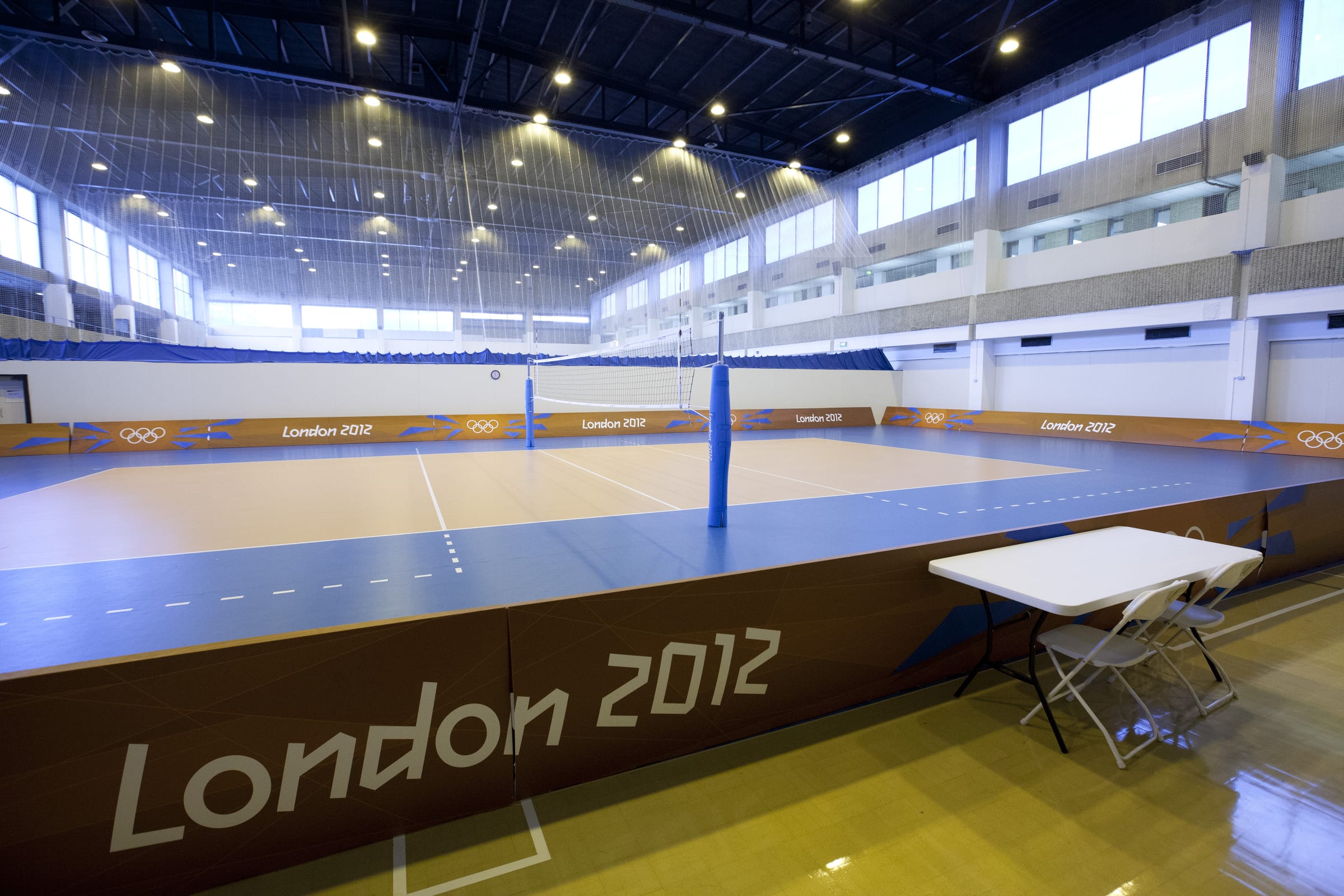Our website is not supported on this browser
The browser you are using (Internet Explorer) cannot display our content.
Please come back on a more recent browser to have the best experience possible

This article is part of a series of retrospectives looking back at MIGSO | PCUBED’s 25 years of operations in the UK. We caught up with Mark Sorrell, Nickolle Paschal and Monica Pal – some of the team that worked on our London 2012 Olympics engagements between 2005 and 2013 – for a quick Q&A session on what it was like.

Mark Sorrell (MS): First off, it is important to mention that we cannot and do not take credit for the overall on-time delivery of the London 2012 Games. Credit will always go to the Organisations’ Leadership and to the collaborative effort of a number of consultancies, including ours.
MIGSO-PCUBED worked on the Games for over seven years and we are extremely proud of our contribution. After the Games the British Olympic Association (BOA) officially recognised us as a “Supplier of programme management consultancy services….to the London 2012 Games”.
Our first task was to support the Head of Programme Assurance to set-up the Olympic Delivery Authority’s (ODA) central Programme Assurance Office (PAO). This included setting the programme management strategy and governance, and then staffing the PAO to ensure robust standards were applied across the organisation.
From this the team focused on supporting key sponsors with their funding approvals. We wrote £5bn+ worth of business cases to secure HM Government Funding – approvals which, on a number of occasions were on the various Olympic / Paralympic venues’ critical path.
Over time as our team grew, our consultants were installed as client-side project managers in Logistics, IT, Design and Regeneration, Security and for the Training Venues. From 2011, our work encompassed making transition arrangements for the eventual closure of the ODA and the transition to the Mayor of London’s Legacy Company.

Nickolle Paschal (NP): I was a client-side project manager in the ODA’s IT department. We were in charge of implementing a new electronic document management system to organise and hold all documentation related to delivering London 2012.
Getting some of the site and build managers to agree to organise documents in a prescribed way, or even getting them to send you the relevant documents was a huge challenge as they were busy building. It was here that I developed my change management skills!
Monica Pal (MP): I joined the team in May 2012. Our responsibility was to write the Business Close-Out Reports for each of the venues to validate and verify that the funding requested was in line with prior approvals. During this stage, we also interviewed various stakeholders, contractors and project managers to capture their lessons learned so that we could pass onto the next Olympic Games.
Mark: And we have carried the learning forward – MIGSO | PCUBED won one of Paris 2024’s first consultancy engagements. Every Host City wants to deliver their Games in their own way, but London is often the reference point to check progress.
Mark: Yes! It was in December 2007 and I was slightly sleep deprived after returning from paternity leave. By the end of day 1, I could already understand the importance of the ODA’s Priority Themes for 2012 – all programme activity needed to reference Health and Safety, Sustainability, Diversity and Inclusion, and Security.
The mantra of yearly milestones, 2-4-1, was also apparent – two years to clear the site and design the future, 4 years for the big build and 1 year for testing and readiness.
Nickolle: I remember it well – the atmosphere was electric! I remember stepping out of the lift and feeling it. I have not experienced it before or since. Everyone was happy, collaborative, inclusive and most importantly ‘wanted’ to be there. We were all working towards the same goal, to deliver the best games ever and in my opinion, we did just that. It felt wonderful being part of such a project.
We were all working towards the same goal, to deliver the best games ever and in my opinion, we did just that. It felt wonderful being part of such a project.
Nickolle Paschal
Monica: Indeed, when I joined the Olympics preparation was in full swing. I remember feeling very privileged and honoured to be part of something that the whole world would be witnessing. I knew this would be a once in a lifetime opportunity and was thrilled to join the team.
Mark: Well – not quite! Printing artwork on a 2.5m metal fence was novel and needed a collaborative supply chain. There was also a protest against the temporary usage of a site for a training venue, which resulted in an intensive four-month period that tested my overall well-being.

Nickolle: For me, mostly it was. I was part of the team collecting and organising all of the project documentation for delivering the games, this included business cases, contracts and construction documentation. Everyone files things in their own way, so introducing a standard system was a challenge, but we got there in the end.
Mark: I don’t recall ‘Agile’ being used as a term and Building Information Modelling (BIM) is now far more prevalent and more advanced. But irrespective of the methodology, the ODA demonstrated that applying a cadence of the same monthly programme management process (a process that was only tweaked, not changed) had long term benefits.
Monica: The ODA had an extensive and complex stakeholder management structure which was managed and executed very well with rapid issue resolution mechanisms in place.
With the tools available today in Project and Programme Management, we could have implemented Power BI to enhance the awareness and comms on progress made across the programme, but this technology was not as developed in 2007-2012 as it is today.
Read also: What is PMO? A Complete Guide.
Mark: Every Spring I cycle around the Queen Elizabeth Olympic Park. I am still amazed by the transformation from waste ground to an oasis of calm with some nice coffee stops.
Nickolle: Legacy was a main theme from the start and what a success it has been! I have visited Queen Elizabeth Olympic Park several times and it is a joy every time. It is now one of my top recommendations for family/friends who visit from abroad. London 2012 got this right for sure.

Monica: I agree. The Legacy of London 2012 is impressive and has been built for longevity in mind that has transformed east London. The Queen Elizabeth Olympic Park is a great attraction for tourists and a great spot for locals which continues to grow and evolve.
Loved what you just read?
Let's stay in touch.
No spam, only great things to read in our newsletter.
We combine our expertise with a fine knowledge of the industry to deliver high-value project management services.
MIGSO-PCUBED is part of the ALTEN group.
Find us around the world
Australia – Canada – France – Germany – Italy – Mexico – The Netherlands – Portugal – Romania – South East Asia – Spain – Switzerland – United Kingdom – United States
© 2024 MIGSO-PCUBED. All rights reserved | Legal information | Privacy Policy | Cookie Settings | Intranet
Perfect jobs also result from great environments : the team, its culture and energy.
So tell us more about you : who you are, your project, your ambitions,
and let’s find your next step together.
Dear candidates, please note that you will only be contacted via email from the following domain: migso-pcubed.com. Please remain vigilant and ensure that you interact exclusively with our official websites. The MIGSO-PCUBED Team
Choose your language
Our website is not supported on this browser
The browser you are using (Internet Explorer) cannot display our content.
Please come back on a more recent browser to have the best experience possible
